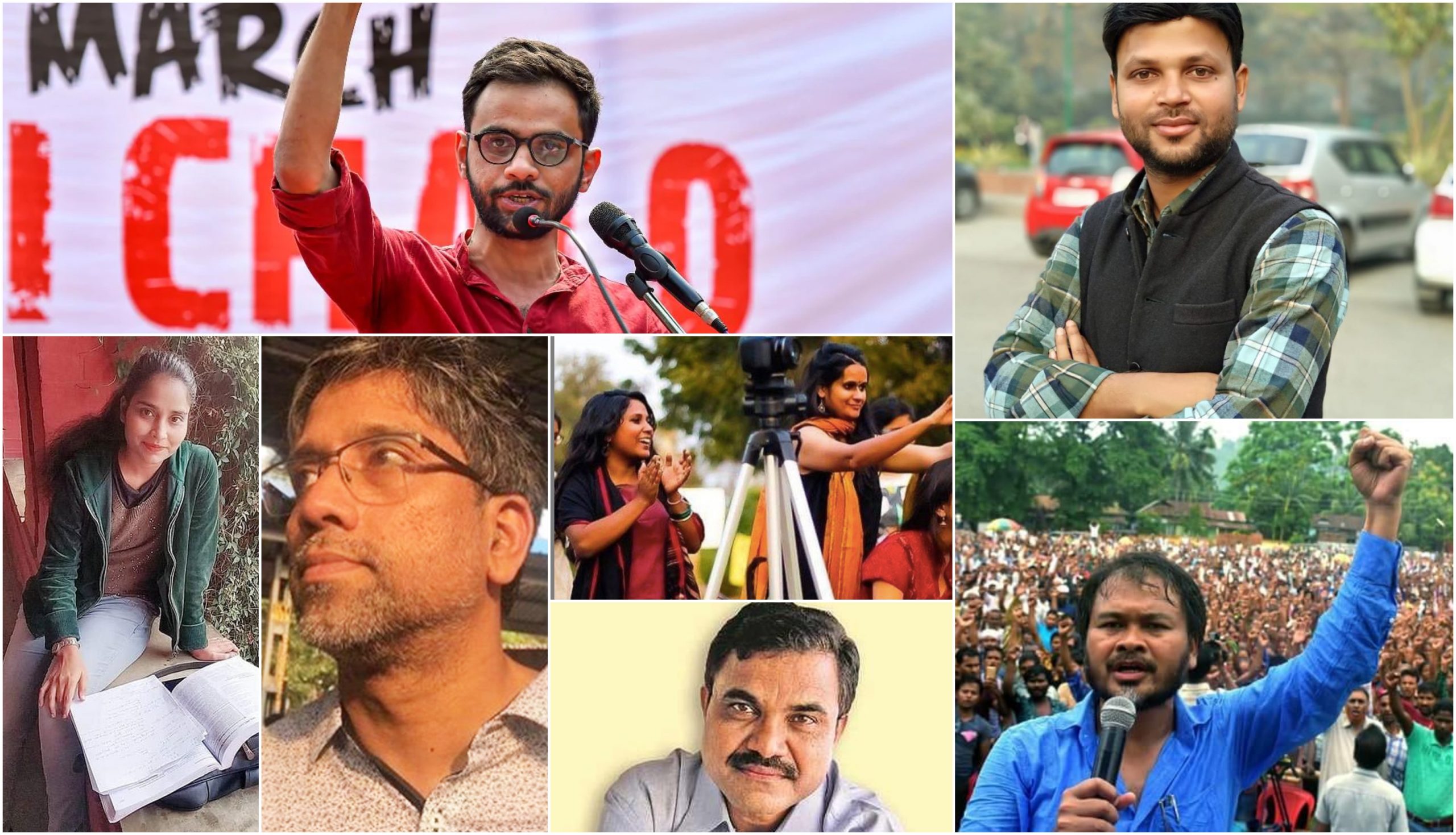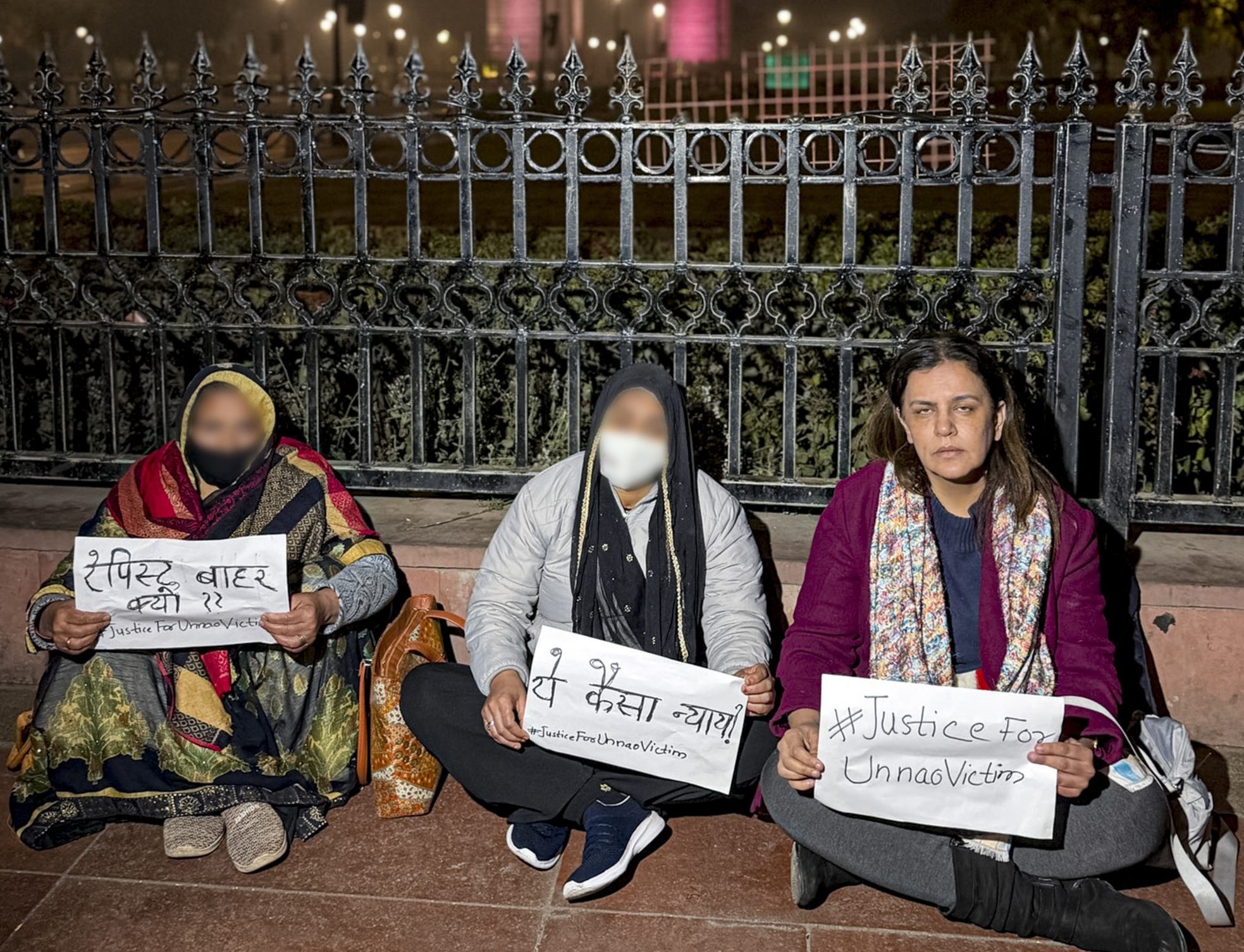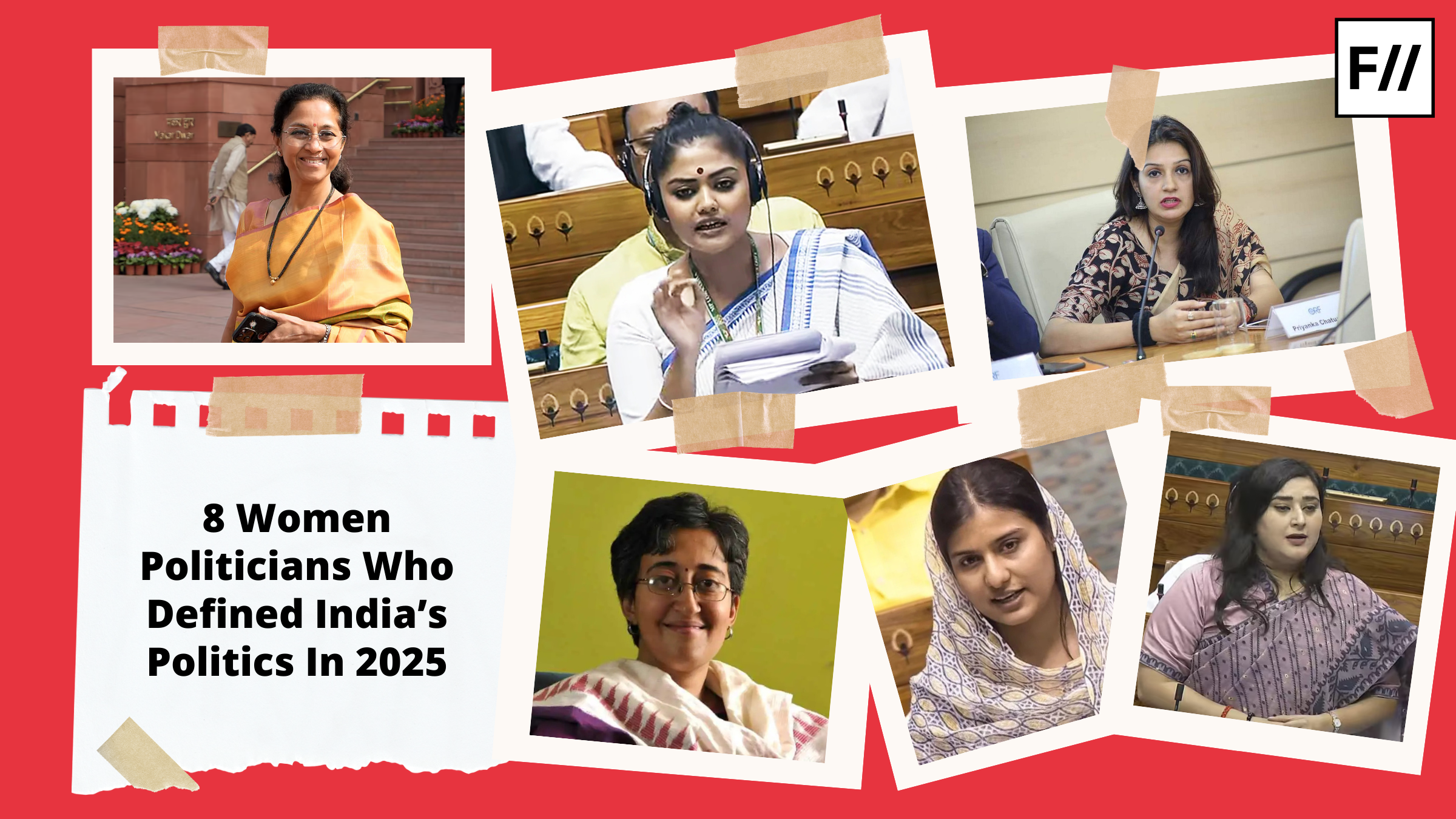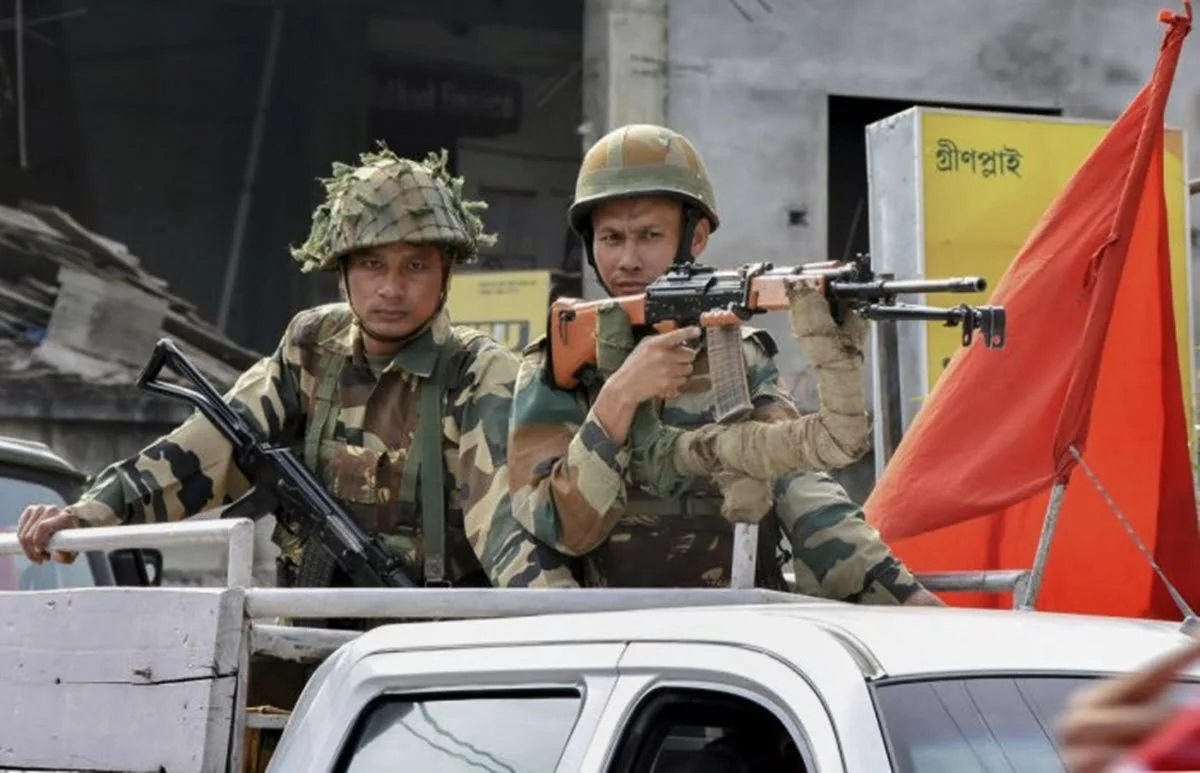With an emerging discourse on ‘social distancing’ and increase in surveillance, the Coronavirus pandemic has unmasked some deep crevices that exist within Indian society. Several activists, academicians, and students have come under media scrutiny after being jailed through politically motivated charges under the draconian Unlawful Activities (Prevention) Act (UAPA), accusing them of hatching conspiracies to “defame the country in the international arena“. Fear of contracting the virus and increased control over physical movement has compromised the ethos of a substantial democracy in many ways, one of it being the government’s attempt to effectively block pathways to justice by using using the pandemic as a pretext of crushing dissenting voices. Lawyers and activists argue that a nation-wide lockdown, used as an alibi to carry out unlawful arrests, shows a position that cannot be ignored under the facade of a public health emergency.
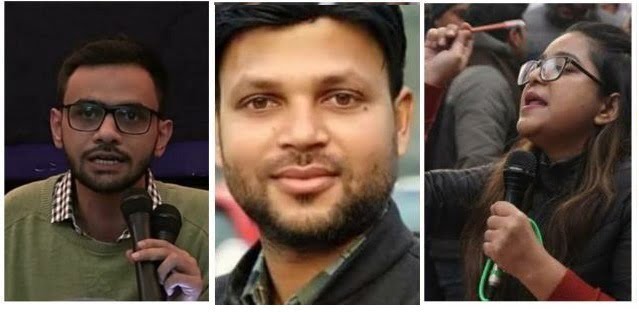
Amidst growing tensions, the intersectionalities of caste, ethnicity, and religion have further amplified these realities by putting women, Muslims, Dalit, Bahujan, and Adivasi students and activists at the risk of being subjected to political violence and further ostracisation.
Several activists, academicians, and students have come under media scrutiny after being jailed through politically motivated charges under the draconian Unlawful Activities (Prevention) Act (UAPA), accusing them of hatching conspiracies to “defame the country in the international arena”.
Devangana Kalita & Natasha Narwal
Devangana and Natasha, both 31, came under political scrutiny when the Delhi police accused them of 33 offenses under various sections of the Indian Penal Code, some of which include murder, terrorism, rioting, and sedition. Both Kalita and Narwal are founding members of a women student collective called Pinjratod which advocates against the regressive mechanisms and norms that exist in university spaces. Pinjratod remained at the forefront of these peaceful protests that were held across the nation against the removal of legal and social safeguards for Muslims.
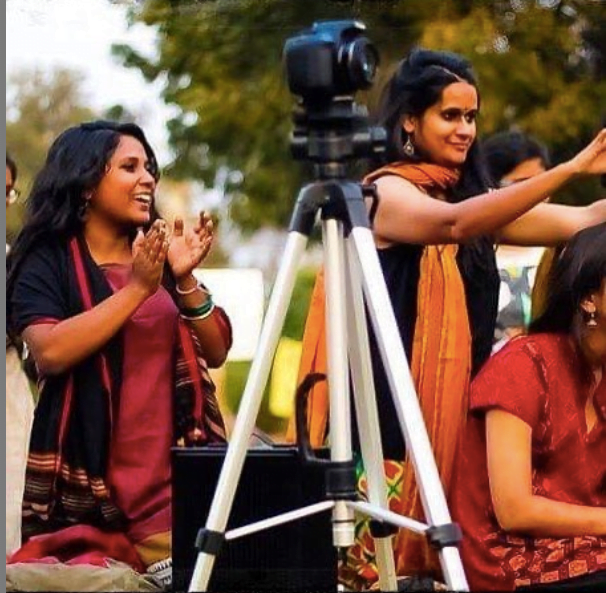
On May 23rd, 2020 amidst a nationwide lockdown, Devangana, and Natasha were arrested by the Special Crimes Cell of the Delhi Police for their involvement in the Jafrabad protest in North East Delhi against the CAA. On the next day, after a special hearing, the Duty Metropolitan Magistrate conceded bail on the account that both were merely exercising their freedom of expression. The Magistrate also raised concerns over the Coronavirus pandemic and stated that the vulnerable public health position of the country does not allow the court to give police custody. Despite this, Devangana and Natasha were not released and instead charged with serious offenses including an attempt to murder and criminal conspiracy.
Both Devangana and Natasha still remain in prison, with the former being granted bail and arrested again under new charges. In their statement on May 24th, Pinjratod stated that,
“The arrest of Devangana and Natasha and the repression being meted out on the student community today makes us ever more aware of the challenges we face, but they also further strengthen our resolve to keep fighting for the dreams of equality and dignity that have forced the darkest hours of history pass into oblivion.”
Also Read: The Caging Of Women’s Dissent By Patriarchal Policing In A Hyper-Masculine Regime
Prof Hany Babu
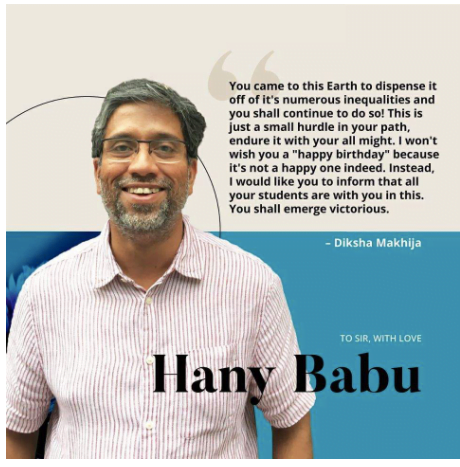
Hany Babu a professor of language and linguistics in the Department of English, Delhi University was arrested on July 28 in connection with the Bhima Koregaon case and has been in jail since then. The case is concerning some reportedly provocative speeches being delivered in an Elgar Parishad event culminating into violent clashes across Maharashtra. Babu was the 12th person to be arrested in the infamous 2018 Bhima Koregaon case under the despotic Unlawful Activities Prevention Act (UAPA). On July 11th, the National Investigation Agency (NIA) summoned Babu claiming that he had been conspiring and propagating Maoist activities and ideologies. He described this action by the Police, including a raid at his residence, seizing several of his books and electronic devices a form of “harassment”. Talking to Scroll.In, Babu stated that traveling to Mumbai is “not just a health hazard to me but also to my family. I live in Noida and there are so many restrictions to even travel to Delhi.”
This attack on academia is not new as many eminent professors like Sudha Bharadwaj and Shoma Sen have also been charged under the UAPA. Following Babu’s arrest, many student organizations, including the All India Students Association (AISA), have urged for an unconditional release and called his arrest a war on intellectuals and activists who are critical of the policies and politics of the ruling party. In an article for The Scroll, Prof Aproorvanand writes,
“It should not be left to the usual suspects to speak for him. It is the duty of all teachers, students, and others to stand up against this most atrocious campaign that independent India is witnessing against its best minds. If we fail now, we may lose India forever.”
Gulfisha Fatima
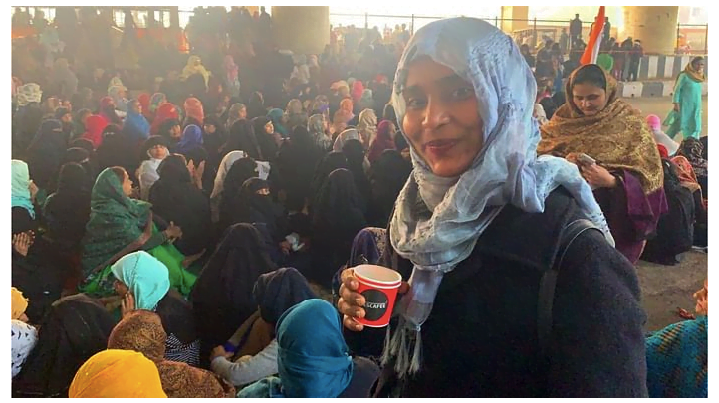
Gulfisha, an MBA graduate was arrested on April 9th and booked under four First Information Reports (FIRs) for charges of terrorism and murder. Fatima completed her Bachelor’s and Master’s in Urdu and later pursued an MBA from the Institute of Management Education, Ghaziabad. Following the lockdown, she, along with Safoora Zargar and many others, was booked under India’s draconian anti-terror law for protesting against the Citizenship Amendment Bill (now an Act). While Zargar was granted bail on humanitarian grounds, Fatima is yet to be released. Since then, many civil society members have issued a statement urging for the release of Gulfisha Fatima, calling her “an inheritor of the legacy of the legendary Savitribai Phule and Fatima Sheikh, who braved all odds to make education and emancipation for all girls and women a reality.” Mehmood Pracha, the lawyer representing Fatima and her family has filed a petition of habeas corpus asserting her detention to be illegal in nature.
Anand Teltumbde
The attack on public intellectuals by the ruling party to crush any or every voice of dissent is not new. Anand Teltumbde, an eminent Dalit scholar and academician remains in jail for his reported links with the Bhima Koregaon violence, with claims that he was involved in a conspiracy of assassinating the Prime Minister. Teltumdbe has been at the forefront of the anti-caste intellectual movement in India and proactively questioned and criticized the Modi-led government in his column ‘Margin Speak’ in the Economic and Political Weekly.
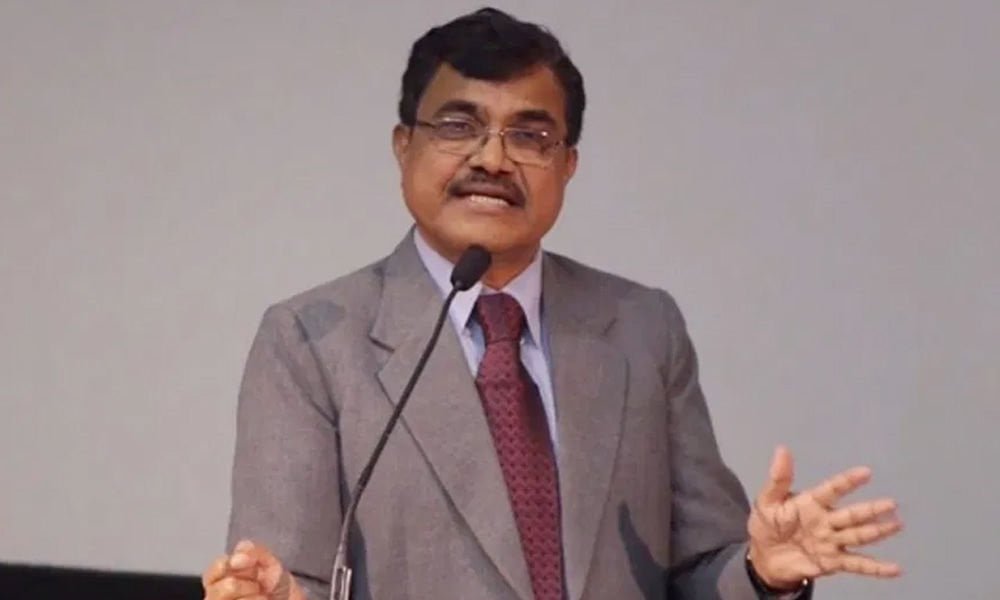
This arrest has created a fear that freedom of expression is under fire in Modi’s India, with Teltumdbe’s health remaining a prime concern. For Prakash Ambedkar, grandson of Babasaheb Ambedkar, Teltumbde’s arrest is a systemic attempt by the Sangh Parivar to erase the legacy of Ambedkar and attack a strand of politics that is anathema to the rightwing, neoliberal regime. Looking at the larger picture, Teltumbde like many other Dalit scholars, represents a collective of intellectuals who have actively advocated for the annihilation of caste through Babasaheb’s vision of anti-caste socialism and a progressive intellectual movement.
For him, the biggest challenge to the Ambedkarite movement lies in an understanding of the legacy that Babasaheb left behind, which for him can be defined as one word – democracy. On April 13th this year, Teltumbde expressed his thoughts in a letter he addressed to the People of India, where he explains in great detail the discriminatory nature of his arrest and writes
“The jingoist nation and nationalism have got weaponized by the political class to destroy dissent and polarise people. The mass frenzy has accomplished complete de-rationalization and inversion of meanings where destroyers of the nation become desh bhakts and selfless servers of the people become deshdrohis.”
Also Read: Women Activists Behind Bars While Kapil Mishra Walks Away Scot-Free
Meeran Haidar
Meeran Haider is a human rights defender and a Ph.D. student at Jamia Millia Islamia University. He was also a member of the Jamia Coordination Committee, organizing the anti-Citizenship Amendment Act protests across Delhi, in December 2019. The Human Rights defenders Alert (HRDA) has listed the details of Haider’s arrest and held the Delhi Police Special Cell to be the prime perpetrators of his arrest. Haider has been kept in the Tihar Jail since April 14, 2020. His bail plea was filed on April 15 and was rejected on April 20. The charges pressed on him include rioting, murder, sedition, and promoting enmity between two groups on grounds of religion along with other serious accusations.
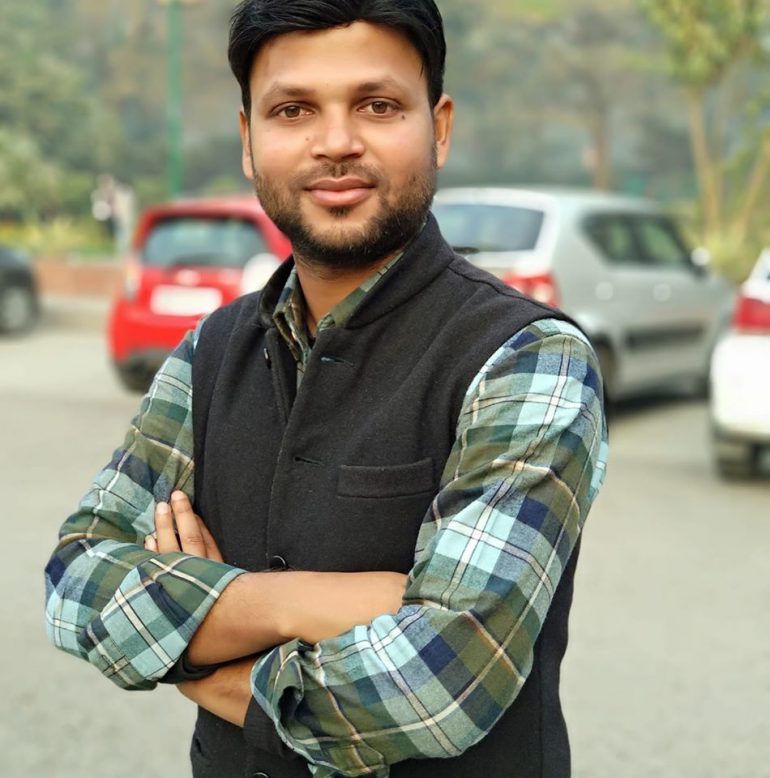
However, the HRDA in their statement has argued the pretext on which Haider’s arrest was initiated which includes some reportedly inflammatory speeches, are yet to be proven true as the police have failed to show any reasonable nexus between the speech and the riots that broke out. Adding to this, the HRDA has called this a threat to freedom of speech and expression and argued that his arrest is not an isolated incident but a systemic attempt by the state to criminalize free speech.
For Muslim activists like Shifa Ur Rehman and Haider, the trouble does not end here. The ongoing phenomenon of fake news and propaganda accompanied by tightened press freedom, on the reportage of Covid-19 and jailed activists have been deeply concerning for human rights defenders across the country. The silence adopted by political parties on Haider’s arrest including the Rashtriya Janata Dal, a party that thrives on Muslim vote bank, has uncovered the sheer hypocrisy of politicians in India.
Nikita Khaitan, a human rights lawyer, speaking to Al Jazeera pointed towards the hindrances resulting from this nationwide lockdown
“Before the lockdown lawyers were still able to physically visit police stations and make it to courts to file applications needed to protect the rights of the arrestees. Those options are unfortunately no longer available because of the restrictions on court functioning“.
With the cases of COVID-19 soaring day by day, the impact on public health and treatment of prisoners inside some of India’s notorious prisons all hints towards the reality that now is the time to act. Lawyers find it difficult to file bail pleas, and administrative work including court proceedings remains hampered at large.
Akhil Gogoi
Akhil Gogoi, a peasant leader from Assam was jailed in December 2019 when protests against the Citizenship Amendment Bill broke out. He has been charged under the draconian Unlawful Activities Prevention Act (UAPA) with allegations of punishment for criminal conspiracy, sedition, and making assertions prejudicial to national‐integration in his speech. Reportedly, the only proof against Gogoi has been the links he had with some Maoists a decade ago, in 2008. Adding to this, the Krishak Mukti Sangram Samiti (KMSS) members claimed that the charge sheet filed against Gogoi and others has no ground and only asserts charges based on books read, and words like ‘Laal Salaam’ (Red Salute) and ‘Comrade’ being used by them.
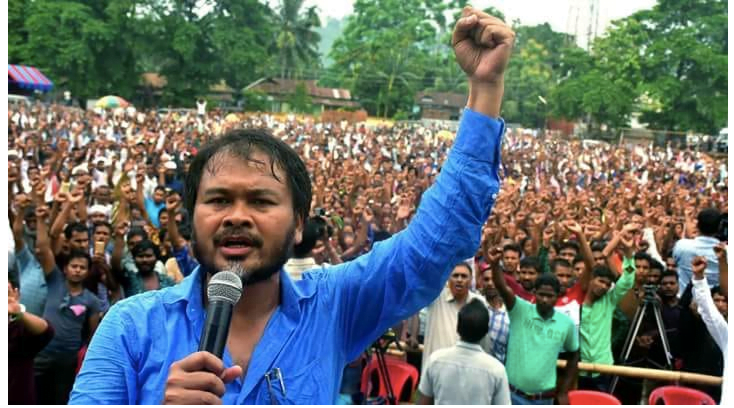
Around July, Gogoi along with fellow activists Bitu Sonowal and Dharjya Konwar tested positive for the Coronavirus inside the prison. IGP of Guwahati Central Jail reported that the reports of Akhil Gogoi testing COVID-19 positive were fake and deemed news of him being mistreated in jail false. Despite this fear, Gogoi later tested positive for the virus inside Guwahati’s Central Jail which has now become a Covid-19 hotspot.
As he was being taken to court, Gogoi reportedly informed the journalists that he is being subjected to “prochondo atyachar (extreme torture)”. In view of this, his deteriorating health along with a worrisome state of prisons during Covid-19 has been alarming for activists and civil society members across the nation.
Also read: Free Sadaf Jafar: The Death Of Democracy And Free Speech
Umar Khalid
As we speak now, Umar Khalid, former JNU student, and activist has been arrested under the UAPA by the Delhi Police after 11 hours of interrogation for his alleged role in the North East Delhi riots that broke out early this year. Khalid has also been accused of delivering provocative speeches and impeding Donald Trumps’s visit to India by encouraging people to block the streets.

His arrest has come immediately after a disclosure statement of an accused has named Communist Party of India (Marxist) Secretary General Sitaram Yechury, economist and professor Jayati Ghosh, Delhi University professor Apoorvanand, Swaraj Abhiyan leader Yogendra Yadav and documentary filmmaker Rahul Roy, as being their mentors and encouraging the anti-Citizenship Amendment Act protestors as part of a plan.
In response, academians and human rights activists have condemned Khalid’s arrest and called this witch hunt on him a “brazen attempt to try to suppress his voice of dissent” under the garb of a health emergency.
Also read: In Photos: When Thousands Marched Together To #StandWithJNU And Save Democracy
With the cases of COVID-19 soaring day by day, the impact on public health and treatment of prisoners inside some of India’s notorious prisons all hints towards the reality that now is the time to act. Lawyers find it difficult to file bail pleas, and administrative work including court proceedings remains hampered at large. Under the garb of this public health emergency, the ruling party has limited the avenues for justice and redressal and raised many questions on the health and safety of jailed activists in overcrowded prisons with inadequate access to health care making it an “added punishment for activists who are unjustly imprisoned”.
Featured Image Source: Radio France Internationale
About the author(s)
Trying to find her sociological imagination. Often finds solace in books and some soulful Sufi music.
